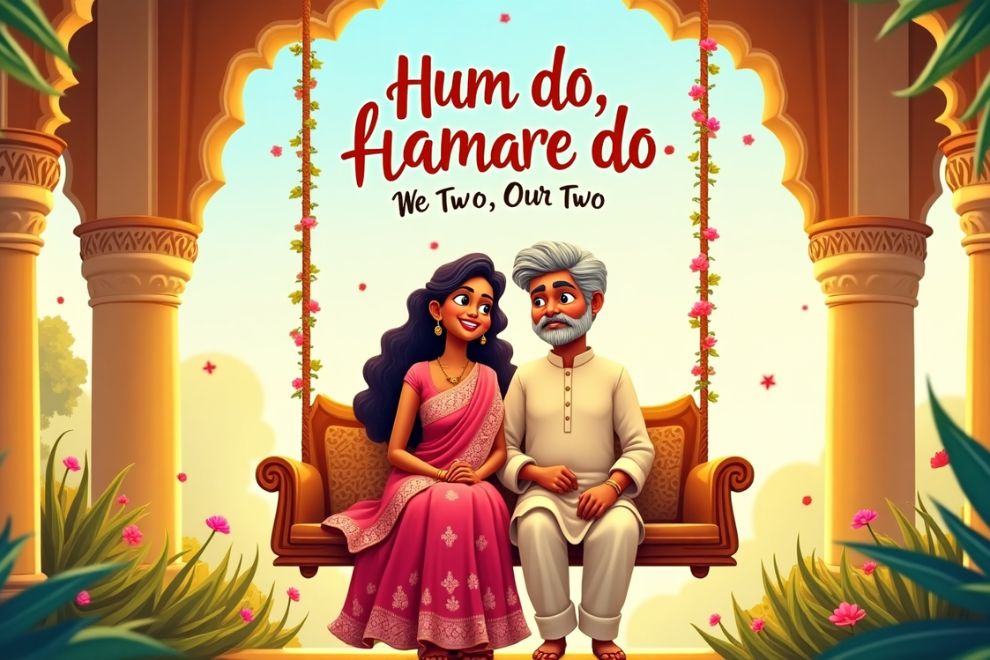The Shift from Tradition
“Hum Do, Hamare Do” — a slogan once popularized as a cornerstone of India’s family planning movement — is taking a backseat in today’s fast-paced, hyper-urban lifestyle. In 2025, many young couples across India are making bold choices: some opting for just one child, while others are embracing a child-free lifestyle altogether.
This isn’t just about rebellion or trendiness — it’s a calculated response to changing economic realities, career ambitions, and lifestyle goals.
The Decline of the Two-Child Norm
For decades, having two children was seen as balanced and ideal — responsible, yet fulfilling. But today’s youth are questioning that logic.
According to recent demographic data:
- Urban fertility rates in cities like Mumbai, Delhi, and Bengaluru have dropped below replacement level (2.1).
- Many metro-based couples say “quality of life” outweighs “family size.”
Rising education, financial awareness, and digital exposure are giving couples the confidence to define family on their own terms.
The Economics of Parenthood
Raising a child in urban India isn’t cheap.
- Education costs (from preschool to college) are skyrocketing.
- Healthcare, extracurriculars, and digital demands add financial pressure.
- Housing is expensive and space is limited, especially in metros.
Young couples — already burdened by EMIs, career stress, and inflation — are asking:
Can we afford to give two kids the life they deserve?
For many, the answer is no.
Lifestyle, Freedom & Mental Health
Unlike previous generations, today’s couples prioritize mental wellness, travel, flexible careers, and personal growth. They don’t see parenthood as an obligation, but as a conscious choice.
- Women are choosing to delay or skip motherhood to focus on careers and self-development.
- Couples are opting to spend their 20s and 30s building businesses, traveling the world, or exploring creative passions.
And guess what? Society is slowly becoming okay with that.
Global Influence & Changing Narratives
India is not alone in this shift. Nations like Japan, Germany, and South Korea are already facing ultra-low fertility rates — and young Indians are watching.
Global narratives around parenting are evolving:
- It’s okay not to have children.
- It’s okay to have just one.
- It’s okay to adopt, foster, or co-parent.
Social media has made these conversations open and inclusive, empowering Indian couples to make unconventional choices with confidence.
🧒 Is the One-Child Choice the New Norm?
In many ways, one child is becoming the new “ideal”:
- You can give more attention, education, and resources to a single child.
- The pressure of parenting is more manageable.
- You maintain more work-life balance.
This isn’t selfishness — it’s intentional parenting, and it’s rising fast among India’s middle and upper-middle classes.
The Rise of Child-Free Couples
Some couples are going further — choosing to live child-free by choice.
- They cite freedom, sustainability, overpopulation, and climate anxiety.
- For others, it’s about not fitting into traditional gender roles or not wanting the stress of modern parenting.
India still holds some stigma around this, but the tide is turning. Films, influencers, and conversations around “non-traditional families” are becoming mainstream and respected.
The New Definition of Family
“Hum Do, Hamare Do” may have served its purpose in post-independence India, but 2025 is a different world.
Today’s couples are empowered, informed, and unafraid to define family their own way — whether that means one child, no children, adoption, or something in between.
At its core, it’s not about fewer kids — it’s about more conscious choices.


